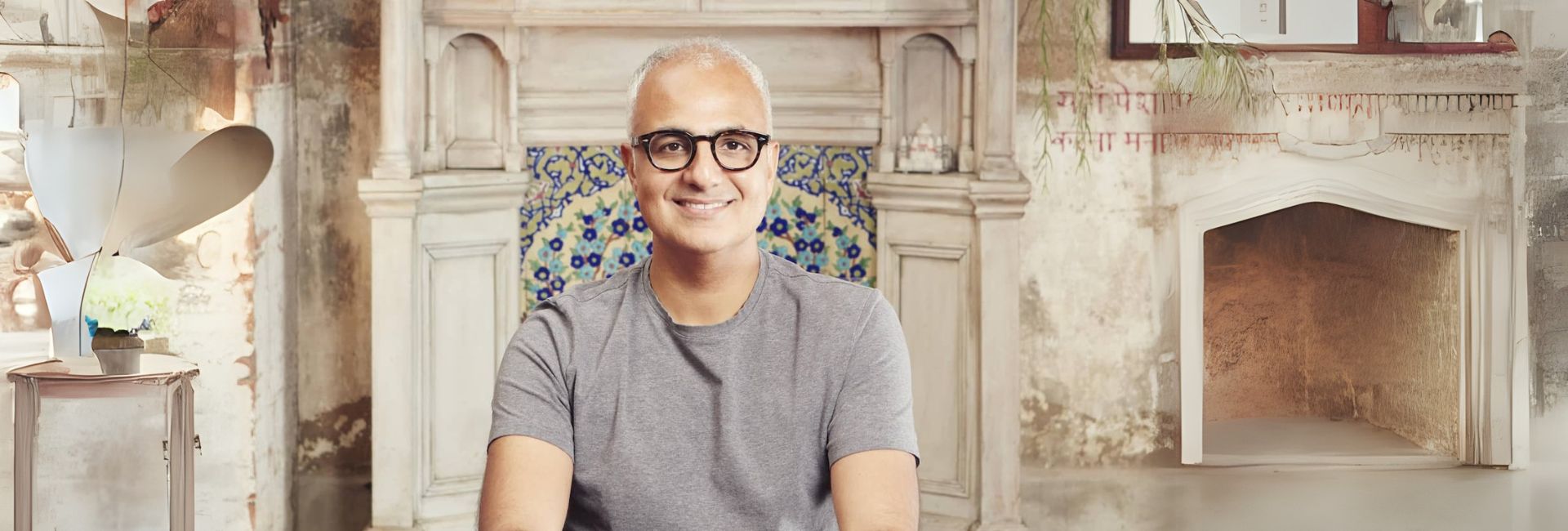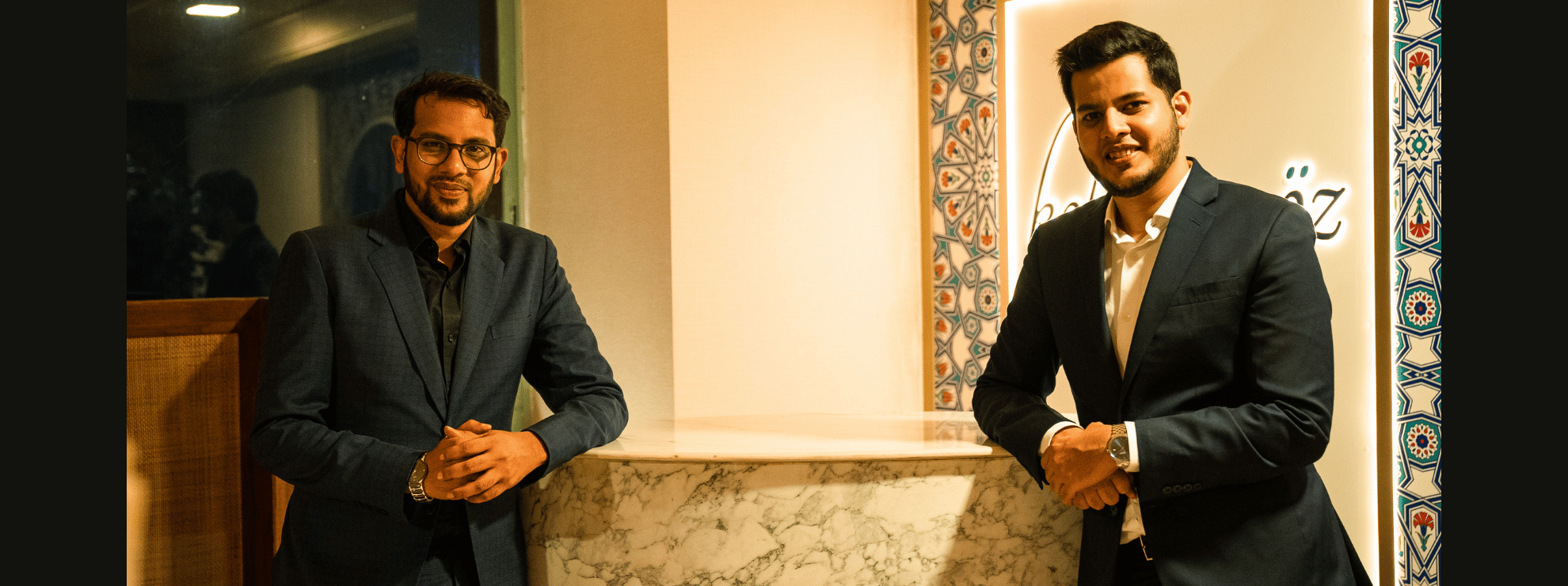(January 21, 2025) In London, where cultures mix and stories unfold, Shamil Thakrar set out to change the way the UK experienced Indian food. Together with his cousin Kavi Thakrar, he co-founded Dishoom, a restaurant inspired by Bombay’s Irani cafés, that not only popularised Indian cuisine but also celebrated its depth and diversity. Together, they have pioneered a new approach to brand building by putting culture and authenticity centre-stage. By 2021, Dishoom was ranked fourth in the ‘100 Best UK Companies to Work For,’ a reflection of its heartwarming mission and innovative approach to dining.
The Call to Adventure
Shamil’s journey didn’t start in the restaurant world. Born to Indian parents in Uganda, his family’s life was upended when they were expelled during Idi Amin’s regime. They relocated to India and eventually settled in Leicester, where his father joined his uncle at Tilda Rice, a company that became a household name. A graduate of PPE from Oxford, followed by an MBA from Harvard, he had a successful career as a consultant at Bain & Company and later helped run his family’s rice business, Tilda. Yet, he sensed something was amiss in the British perception of India. “When British people think of India, they might think of things like the days of the Raj, palaces, Bollywood, curry houses, or cricket,” the Global Indian reflected. “I had the sense that a lot more could be said about India, both food-wise and culture-wise”.
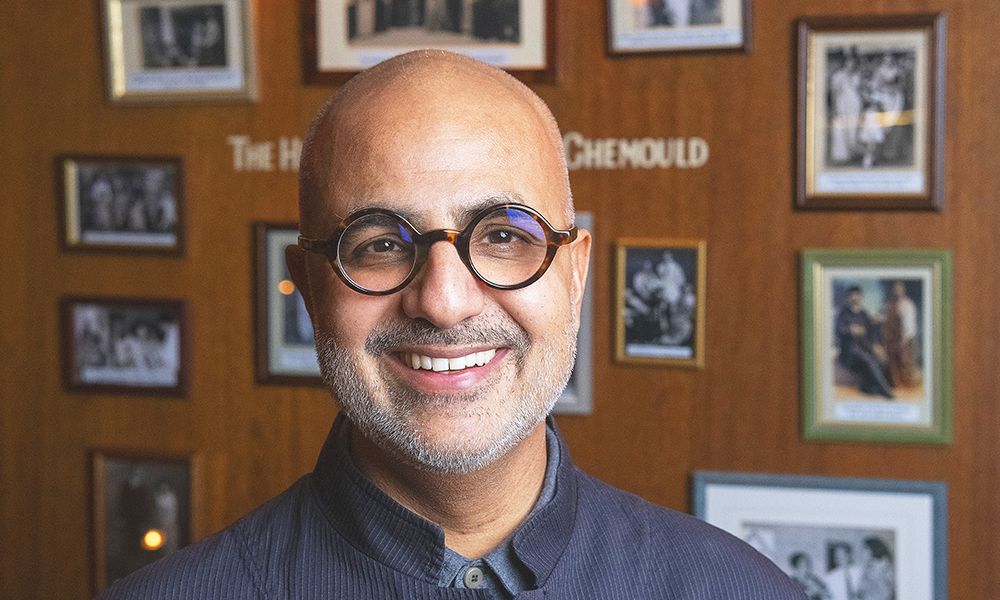
Shamil Thakrar
The “curry house” stereotype weighed heavily on Shamil. Indian immigrants arrived in the UK decades ago, bringing with them their food traditions. Yet, they were often seen through the lens of the curry house — popular, but a limited view that didn’t reflect the rich diversity of Indian cuisine. Shamil’s own childhood experiences further shaped his vision. Having spent time in Bombay (now Mumbai), he was captivated by the city’s streets and the iconic Irani cafes that served as melting pots for people from all walks of life. These cafes, born out of a unique cultural fusion, were gathering spots for people of all backgrounds — places where differences dissolved over cups of chai and plates of keema pav. For Shamil, this was the India he wanted to showcase and share with the world.
Crossing the Threshold
Opening Dishoom’s first location in Covent Garden. London in 2010 was no easy feat. The UK was reeling from the 2008 financial crisis, and starting an Indian restaurant — “a curry house,” as skeptics labeled it — seemed risky. “People told me I was barmy,” Shamil recalled. “Friends of my father even asked him if his son had gone mad”. Yet, Shamil’s vision was clear: this would not be another run-of-the-mill Indian restaurant. Dishoom would be an immersive experience — a portal to 1960s Bombay, complete with marble-topped tables, whirring ceiling fans, and evocative storytelling etched into its very walls.
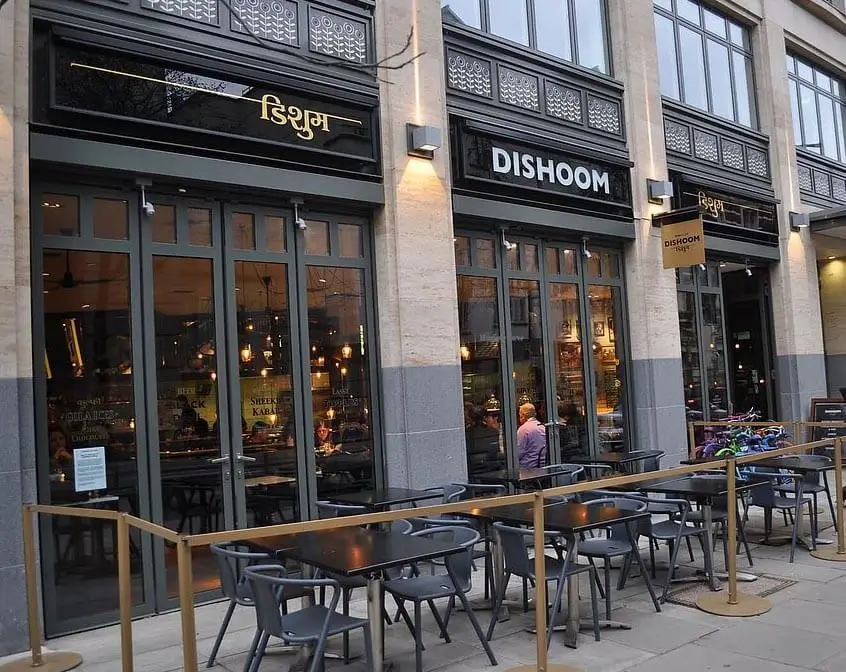
Dishoom at Covent Garden
But the early days were tough. Shamil Thakrar admits he was too focused on costs and operational efficiency, a mindset carried over from his consulting days. “We realised it was much more important to build the quality of the experience,” he said. “Awesome food, awesome service, and a happy team became our priorities”.
The Hero’s Allies and Philosophy
Central to Dishoom’s success is its guiding philosophy of “Seva,” the Hindi word for selfless service. “At its heart, Seva is an act of generosity,” Shamil explained. “We felt that all of us came into hospitality for a reason — we like serving people. It’s part of human nature; we’re happiest when we’re giving of ourselves”. Dishoom’s commitment extends beyond its restaurants, touching lives through initiatives like celebrating diverse festivals and donating meals via partnerships with Magic Breakfast and The Akshaya Patra Foundation. With over 11 million meals donated and 200,000 meals provided monthly, Dishoom is not just a restaurant chain but a community-driven force of kindness and inclusion.
Indian Food Culture and the Irani Café Legacy
Indian food in the UK has long been associated with curry houses and takeaway outlets, shaped by colonial history and migration. Dishoom transformed this narrative by bringing the essence of Bombay’s Irani cafés to a modern audience. By blending authenticity with a casual yet high-quality dining experience, Dishoom bridges traditional curry houses and fine dining. This innovative approach has influenced the UK’s culinary scene, inspiring a wave of mid-range Indian eateries that celebrate tradition while embracing contemporary dining.
View this post on Instagram
Dishoom’s menu celebrates Bombay’s rich culinary heritage, with dishes like black daal, bacon naans, and chole puri. But Dishoom is more than just food; every location tells a unique story. The Shoreditch branch imagines an Irani café transplanted from Bombay to East London, while the Soho outlet weaves the narrative of a young Irani transforming into a songwriter in 1960s London. Each outlet blends flavours and storytelling, offering an immersive experience that honours Bombay’s vibrant culture.
Trials and Transformations
As Dishoom expanded beyond London to cities like Edinburgh and Manchester, Shamil Thakrar faced the challenge of staying true to the brand’s ethos while adapting to new locations. Even during the pandemic, Dishoom innovated by launching delivery kitchens. Through it all, Shamil emphasized maintaining the quality of the experience above all else. “Focus on the experience,” he said, “and the profits will follow.” His attention to detail and storytelling ensured that Dishoom’s growth stayed aligned with its core values.
Dishoom’s workplace culture is a key part of its identity, earning recognition as one of the best companies to work for. With a strong focus on training, diversity, and fair wages, the group has redefined hospitality standards. Shamil highlights this ethos: “We can’t make customers happy if our team isn’t happy.” This commitment ensures a supportive environment where employees thrive, creating an exceptional guest experience.
View this post on Instagram
The Return and Impact
Today, Dishoom is more than a restaurant chain; it’s a cultural phenomenon. By reintroducing the Irani café culture to a global audience, Shamil has helped shift perceptions of Indian cuisine from the generic to the extraordinary. The chain’s influence extends beyond its walls, sparking conversations about migration, identity, and the shared histories of India and Britain.
For the Indian diaspora in the UK, Dishoom offers a sense of nostalgia and connection, blending authentic flavors with innovative touches that evoke the warmth of home. For British diners, it serves as an introduction to the vibrant, multifaceted culture of Bombay, creating a shared space that bridges traditions and modernity.
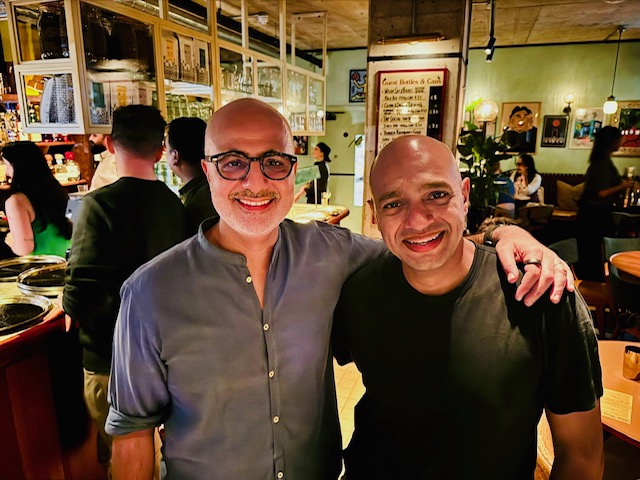
The Journey Continues
Shamil’s story is far from over. As Dishoom continues to grow, so does its mission to foster connection and understanding through food. “When people break bread together, barriers break down,” Shamil said. “The world needs that.”
In the golden glow of a Dishoom café, amidst the clinking of glasses and the aroma of freshly baked naans, one can see Shamil’s vision come to life: a space where the past meets the present, where stories are told, and where every meal is an act of love.
- Follow Shamil Thakrar on LinkedIn

